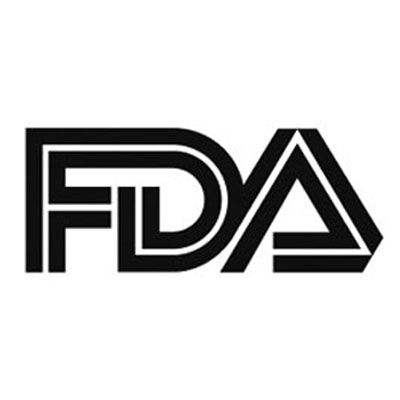FDA Approves Nivolumab/Ipilimumab Combo for Advanced PD-L1+ NSCLC
The combination of the combination of nivolumab and ipilimumab is now approved by the FDA for the treatment of metastatic or recurrent non–small cell lung cancer with PD-L1 expression greater than 1%...

The FDA has approved the combination of nivolumab (Opdivo) and ipilimumab (Yervoy) for the treatment of patients with metastatic or recurrent non–small cell lung cancer (NSCLC) whose tumors express PD-L1 (≥1%), as determined by an FDA-approved test, and who do not have an EGFR or ALK tumor aberration.1
Support for the approval came from positive findings from Part 1 of the phase III CheckMate 227 trial, which explored the nivolumab/ipilimumab regimen in comparison with chemotherapy in patients with previously untreated NSCLC. Use of the immunotherapy combination led to a significant improvement in overall survival (OS) compared with chemotherapy alone.
The median OS in patients with a PD-L1 expression ≥1% was 17.1 months (95% CI, 15.0-20.1) with the immunotherapy combination versus 14.9 months (95% CI, 12.7-16.7) with chemotherapy (HR, 0.79; 97.72% CI, 0.65-0.96; P = .0066). In the total trial population, the median OS was 17.1 months (95% CI, 15.2-19.9) with nivolumab and ipilimumab compared with 13.9 months (95% CI, 12.2-15.1) with chemotherapy.3
"Patients with metastatic lung cancer remain in need of new treatment options that may provide durable responses,” said study investigator Matthew D. Hellmann, MD, a medical oncologist at Memorial Sloan Kettering Cancer Center, in a statement.2 “The results from the CheckMate 227 trial show that a dual immunotherapy approach offers a chance at long-term survival for appropriate patients with metastatic NSCLC.”
CheckMate 227 is an open-label phase III trial consisting of multiple parts examining the safety and efficacy of treatment with nivolumab-based regimens in comparison with platinum-doublet chemotherapy for patients with treatment-naïve advanced NSCLC.
Part 1a (n = 1189) was focused on nivolumab with low-dose ipilimumab or nivolumab monotherapy versus chemotherapy in patients whose tumors express PD-L1, and Part 1b (n = 550) was focused on nivolumab with low-dose ipilimumab or nivolumab and chemotherapy versus chemotherapy alone in patients with no PD-L1 expression. Both Part 1a and 1b randomized patients between the 3 arms in a 1:1:1 fashion with nivolumab administered at 3 mg/kg every 2 weeks with ipilimumab 1 mg/kg every 6 weeks or 240-mg nivolumab monotherapy every 2 weeks or chemotherapy given every 3 weeks for up to 4 cycles. Part 2 examined nivolumab and chemotherapy versus chemotherapy alone in patients regardless of their PD-L1 status. Across the trial patients were stratified by histology.
For Part 1, a primary end point was OS with the immunotherapy combination versus chemotherapy in patients with PD-L1 expression ≥1%.
At 1 year, the OS rate was 62.6% with nivolumab/ipilimumab and 56.2% with chemotherapy and at 2 years, the OS rates were 40.0% and 32.8% for the immunotherapy combination and chemotherapy, respectively.
The rates and duration of OS were consistently higher in the immunotherapy arm regardless of PD-L1 expression status.
The objective response rate with nivolumab and ipilimumab was 35.9% (95% CI, 31.1%-40.8%) and 30.0% for chemotherapy (95% CI, 25.5%-34.7%). The median duration of response was 23.2 months (95% CI, 15.2-32.2) with the doublet and 6.2 months (95% CI, 5.6-7.4) with chemotherapy. At 2 years, 49.5% of patients receiving immunotherapy had an ongoing response compared with 11.0% of patients receiving chemotherapy.
Treatment-related adverse events (TRAEs) were reported in 76.7% of patients who received nivolumab/ipilimumab and grade 3/4 TRAEs were seen in 32.8%. The most common TRAEs with the immunotherapy regimen were diarrhea (17.0%), rash (17.0%), fatigue (14.4%), and decreased appetite (13.2%).
TRAEs led to discontinuation in 18.1% and there were 8 treatment-related deaths in the nivolumab/ipilimumab arm.
Patients with sensitizing EGFR mutations or ALK alterations, autoimmune diseases, or untreated or symptomatic central nervous system metastasis were excluded from participating in the trial.
The FDA simultaneously approved the PD-L1 IHC 28-8 pharmDx assay as a companion diagnostic for identifying patients with NSCLC who would benefit from treatment with nivolumab and ipilimumab.1
References:
1. FDA approves nivolumab plus ipilimumab for first-line mNSCLC (PD-L1 tumor expression ≥1%) BMS [news release]. FDA; May 15, 2020. https://bit.ly/3cwvlo2. Accessed May 15, 2020.
2. U.S. Food and Drug Administration Approves Opdivo® (nivolumab) + Yervoy® (ipilimumab) as First-Line Treatment of Patients with Metastatic Non-Small Cell Lung Cancer Whose Tumors Express PD-L1≥1% [news release]. Princeton, NJ: Bristol Myers Squibb; May 15, 2020. https://bit.ly/3bE54CW. Accessed May 15, 2020.
3. Hellmann MD, Paz-Ares L, Carbo RB, et al. Nivolumab plus ipilimumab in advanced non–small-cell lung cancer. N Eng J Med. 2019;381:2020-2031. doi:10.1056/NEJMoa1910231